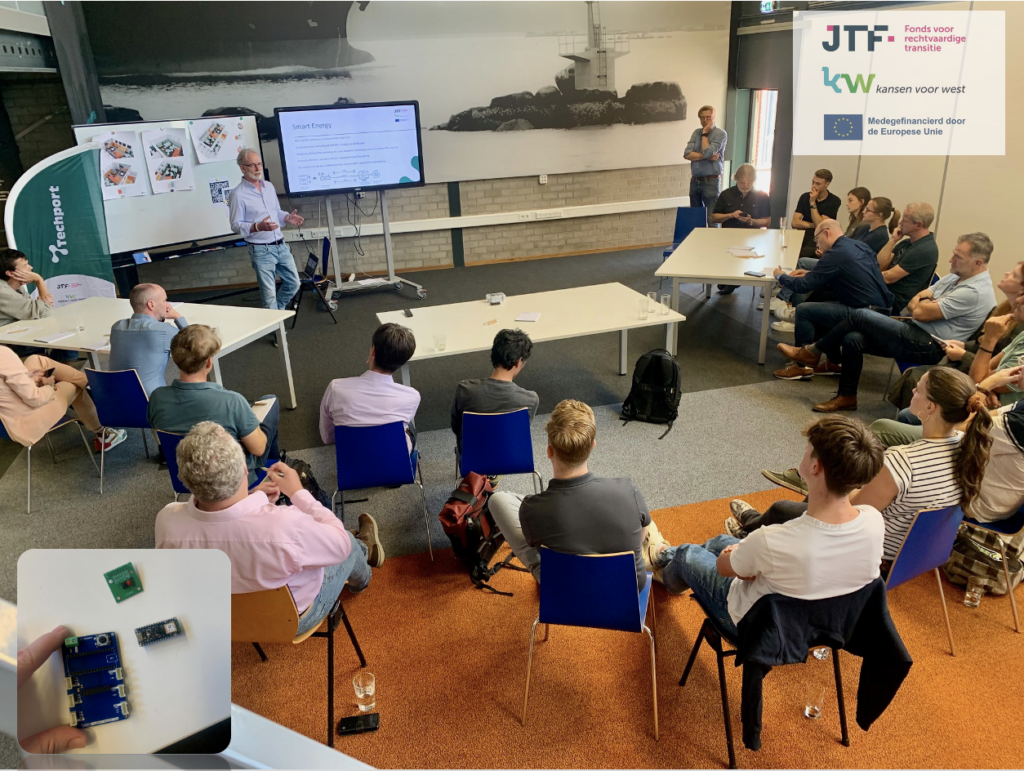Together towards cleaner and smarter business processes with Techport Fieldlab Smart Energy
What can the Techport Fieldlab Smart Energy do for your company? And how can you deploy Tiny ML and Smart Sensoring? On the inspiration afternoon of September 5 in the Techport Innovation Centre we gave insight into this. Project leader André Gerver explained the project after which SURF and Sensorsphere explained the hardware and infrastructure of Tiny Machine Learning (Tiny ML). The practical example came from Hilton Foods Holland where Tiny Machine Learning was applied to one of the production machines to predict maintenance and thus prevent breakdown or downtime, which in turn prevents food waste. You can read more about it in this interview with Hilton Foods.
At the inspiration afternoon, several companies saw opportunities to try out a use case. Around grid congestion issues, this smart energy application could also be of interest. The Fieldlab Smart Energy program will start soon with workshops, webinars and company visits.
The objective of Fieldlab Smart Energy is to make smart (new) digital technologies such as smart sensoring and tiny machine learning that can contribute to cleaner and smarter business processes and assets more accessible to SMEs. In the Smart Energy Learning Community, companies and educational institutions share technologies and results of use cases and work on the business cases (scaling up) of the technology. The project was recently awarded a contribution from the Just Transition Fund.
Read more about this project here.
Would you like to participate in one of the learning communities, do you have an interesting use case or would you like to contribute in another way? Then contact Andre Gerver at andre.gerver@techport.nl.

-
What is Tiny ML?
Tiny Machine Learning allows you to map energy consumption and the production process and save up to 30% energy. It is safe, and also cheaper than traditional solutions, where you first have to invest a long period of time in collecting data and storing it in the cloud. With Tiny ML, this process is much faster, because the measurement is "on the edge," or on the device itself, and no data transfer is required.
-